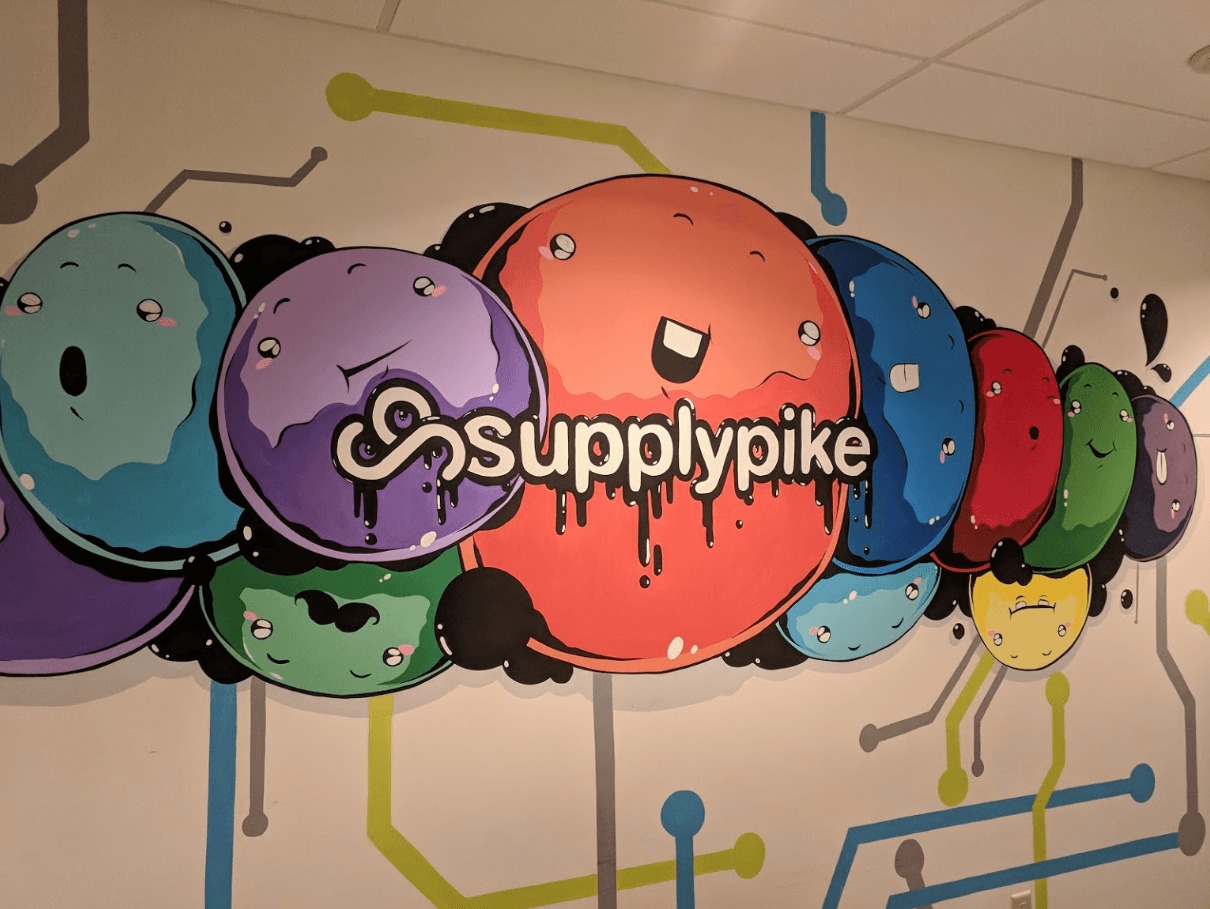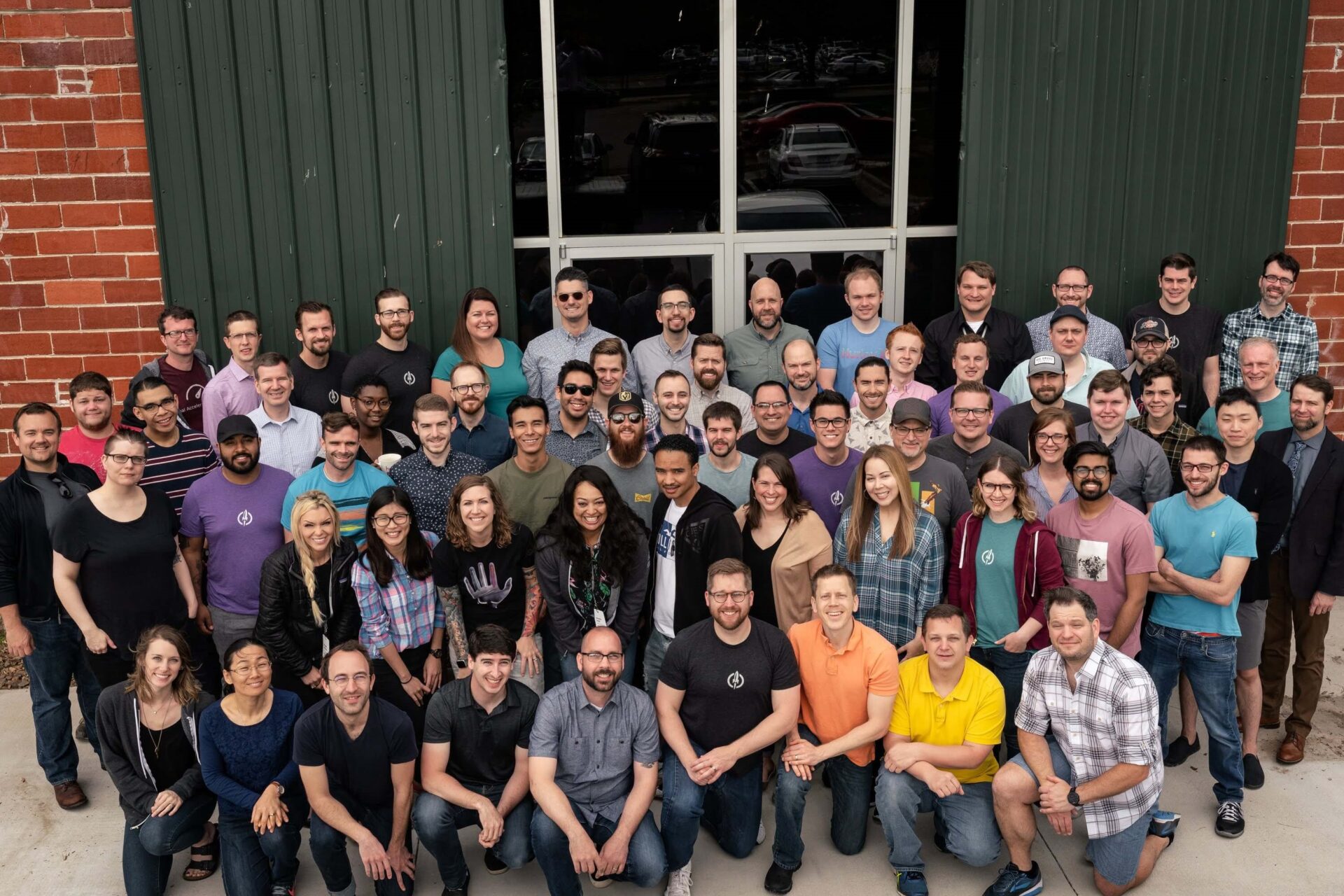For many companies in the United States the adoption and implementation of blockchain, machine learning and artificial intelligence remains slow.
But here in Northwest Arkansas, we’re seeing regional corporations, higher-education institutions, and startups embrace these emerging technologies and develop industry-changing standards, protocols, and products.
This month, the University of Arkansas launched the Blockchain Center of Excellence as part of the Sam M. Walton College of Business and Tyson Foods announced plans to build a state-of-the-art manufacturing and automation technology center as part of their commitment to turn downtown Springdale, Arkansas into a technology hub.
Alongside higher-education and the regional powerhouses of retail, transportation and logistics, startup sized businesses are developing cutting-edge technologies that stand out on a national scale.
We reached out to a few leaders of these organizations to hear about how they’re pioneering their field in NWA.

Supply Pike
SupplyPike Disrupts a Trillion Dollar Industry with Blockchain
SupplyPike is a supply chain technology company in Fayetteville, Arkansas. Formed by CaseStack, it operates as a research and development startup that takes risks and explores new technologies that benefit the transportation and logistics industry.
“There’s a perception on the coast that people in Northwest Arkansas don’t work on cutting-edge technology like blockchain, machine learning, and artificial intelligence,” said TJ Sangameswaran, Director of Supply Pike, “By working on these kinds of technologies we’re showing that important, impactful research happens everywhere. The research we do can shift the industry.”
SupplyPike CEO Dan Sanker was recently invited by Congress’ Subcommittee on Digital Commerce and Consumer Protection to serve as a witness during its “Review of Emerging Tech’s Impact on Retail Operations and Logistics.”
Earlier this year SupplyPike launched Ship, the first digital freight marketplace to accept cryptocurrency as a form of payment. They also announced that they are working with two other companies, ShipChain and Morphius Network, who have their own cryptocurrencies specifically targeted for the supply chain.
Sangameswaran believes that blockchain has reached a level of maturity now where Bitcoin can be used as a legitimate form of payment. SupplyPike is now working on testing other methods for implementing blockchain.
“It’s critical for us to be at the forefront of innovation,” he said. “Supply chain has many players, including carriers, warehouses, retailers, and trade partners. But nobody has a holistic view of the entire supply chain end-to-end. The information being on the blockchain, where there’s a single, undisputed version of the truth, will probably be the most important application of blockchain in supply chain. Once we have it all in blockchain then we can have smart contracts and automatic movement of money.”
Smart contracts help individuals and businesses exchange money, property, or anything of value, in a way that is transparent and conflict-free. The contract is written as code into the blockchain. All parties are anonymous but the contract is on a public ledger. Events trigger the execution the contract, all of which is transparently and indisputably tracked on the ledger.
The engineering team at SupplyPike is already testing ways for implementing smart contracts. Part of leading this trillion dollar industry in innovation is to invest heavily in engineering fulfilment.
SupplyPike has specifically commited 10% of their engineers time to discovering, learning and testing new tech innovations.
“They’re working on the next big thing in supply chain, which is exciting and new. These engineers are on the leading edge of not just technology but also of an industry. They’re actively doing things to disrupt an industry, which makes the team very excited about their job.”

RevUnit
RevUnit Develops Transformative Digital Solutions with AI & Machine Learning
RevUnit, an award-winning digital product agency, also prides itself on being on the cutting edge of transformative business technologies.
Michael Paladino is the CTO and Co-Founder of RevUnit — he started the company with business partner, Joe Saumweber in 2012.
“The goal [when we started RevUnit] was to build a great digital product company, “ he said, “Our focus on emerging technologies has been to look at technology that could have the biggest impact on the products that we build for our clients. Early on we identified that artificial intelligence and machine learning were the number one priority for us.”
RevUnit has specifically committed to building intelligent platforms and products that best apply AI and machine learning capabilities.
“To be considered intelligent it must do one or more of three things: automate the mundane, uncover insights, or adapt to their user or their environment,” said Paladino, “A lot of the work we’ve been doing with clients has been around automation, predictive insights, and recommendation engines.”
Their continuous push to produce innovative work has earned RevUnit a slew of accolades and awards. They have been named to the “Inc 5000” list of fastest growing American companies, are one of Entrepreneur magazine’s “360 Best Entrepreneurial Companies in America”, and recognized as a “Best Place To Work” for three consecutive years.
In June 2018, RevUnit joined the Blockchain in Transport Alliance (BiTA), an organization built to establish transparent blockchain standards. Other members include J.B. Hunt, UPS, Google, FedEx, and more. Spruce Feinstein, a technology architect at RevUnit, also serves on the BiTA Interoperability Standards Working Group.
RevUnit works closely with clients in the transportation and logistics industry and sees great value in being part of a convening entity like BiTA.
“It’s our opinion that blockchain will absolutely enable a lot of transformative types of technologies and applications. We’ll continue to see a lot of proof of concepts but the real transformation won’t happen until protocols are established and companies can work together and share information,” said Paladino, “We’re doing as much as we can to be part of the proof of concepts and helping to ensure how companies use the data.”
Currently, RevUnit is headquartered in Bentonville, Arkansas and has another office in Las Vegas, Nevada. Their commitment to innovation has opened doors across the country as they push the industry to new heights.

Bucket Technologies
Bucket Applies a Technology Solution to Help the World Go Cashless
Bucket Technologies is another startup making waves, not just in Northwest Arkansas, but around the world. According to their website, “Bucket is the solution to the world’s coin currency problem.” They believe that they have an innovative way to reduce the economic stress and environmental burden caused by the production and circulation of coins.
How it works: Participating retailers give consumers the option to ‘bucket their change’ when making a cash purchase. Instead of coins they get a Bucket receipt that they scan to deposit their change electronically into the app. The consumer can then cash out to their bank account or donate it to charity.
Bucket wasn’t founded in Northwest Arkansas but the fintech startup now calls the region its satellite headquarters.
“There’s a lot of support for technology startups to flourish in Northwest Arkansas,” said Francis Hwang, CEO of Bucket, “As a startup we felt like NWA had the resources we needed to launch Bucket with the best possible outcome. We’ve had a tremendous amount of support from private enterprise, nonprofits, chambers of commerce, and even the mayors of the cities.”
From the get-go it’s been clear that Bucket isn’t like other fintech companies. Their platform is free to use for customers, retailers and charities. When participating in the Venture Center’s FinTech Accelerator Program in Little Rock, Francis noted that Bucket stood out because they weren’t selling anything to the banks they were pitching.
“Cash costs banks a fortune from their bottom line because they’re the ones who have to replenish every retailer on the planet. They’d love to see coins go away,” he said.
“We went into the accelerator to figure out how we can co-market, and how banks can introduce Bucket to their retail client portfolio, which would allow us to focus on what matters the most — the distribution. The more stores we’re operating in the more impact we have across the country.”
Bucket will begin testing its digital piggy banking technology in Northwest Arkansas select retailers this summer.
Northwest Arkansas
It is evident that Northwest Arkansas businesses are not just following in the footsteps of coastal city innovators, but often leading the way with applied technology innovations.
Thanks to the many talented people behind these organizations it’s likely that this region will become known for its commitment to science, technology and entrepreneurship.












